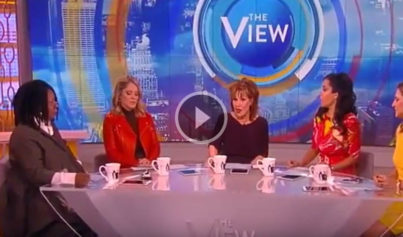
This image released by Showtime shows Frankie Shaw as Bridgette Bird in a scene from “SMILF.” Shaw, who created the series, also directed several episodes of the show. (Colleen Hayes/Showtime via AP)
LOS ANGELES (AP) — More women are being hired to direct TV episodes, but the numbers remain stagnant for directors of color, according to an industry guild study.
Women directed a record 25 percent of episodic television in the 2017-18 season, an increase of 4 percent from the previous season, according to the Directors Guild of America study released Wednesday.
African-Americans directed 13 percent of series TV in 2017-18, unchanged from the previous season, the study found. Asian-Americans at 6 percent and Latinos at 5 percent were up one percentage point each from 2016-17.
“The bright spot here is that the doors are finally opening wider for women, who are seeing more opportunities to direct television,” guild President Thomas Schlamme said in a statement. “But it’s disappointing the same can’t be said for directors of color.”
The series “SMILF,” ”One Day at a Time” and “Queen Sugar” were among the standouts for inclusiveness in their directing ranks. Among studios, Disney-ABC, Twentieth Century Fox, Lionsgate and CBS held the top four spots in the study.
The annual report examined 4,300 episodes produced in the 2017-18 season, which the guild said represented a drop from the all-time high of nearly 4,500 episodes in the season before.
For women, there was a disparity in opportunities based on ethnicity. The share of episodes directed by white women rose 3 points to 19 percent, while women of color notched a one-point increase.
White men saw their share of TV series directing jobs drop from 61 percent to 56 percent, the study found. Among all men, the share of jobs dropped four points to 75 percent.
According to U.S. Census Bureau figures, men represent 49.2 percent of the population, with white men at about one-third. Latinos make up 18.1 percent of the country, African-Americans 13.4 percent and Asian-Americans 5.8 percent.
A guild report released in August found “insider hiring” to be hindering the move toward diversity. Writers, actors or others already connected with a TV series can be “gifted” one-time directing jobs, blocking career progress for women and people of color, the guild said.
In the TV seasons between 2009 and 2016, nearly 70 percent of first-time directing assignments went to industry insiders, with white men getting three-quarters of the jobs.


